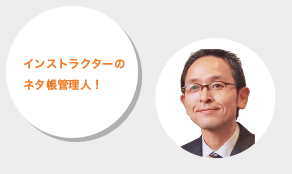(Schmalleger, 2014). Hence, the utilitarianism of Jeremy Bentham and Cesare Beccaria remains a relevant social philosophy in policy term for using punishment as a deterrent through law enforcement, the courts, and imprisonment. (Vold, Bernard, & Snipes, 2002) Just like Beccarias principles, the French Code of 1789 called for the judge being the only mechanism for applying the law, and the law took the responsibility for defining a penalty for every crime and every degree of crime. Perhaps no other book in the history in the history of criminology has had so great an impact. There are ten principles that are used to summarize Beccarias arguments and ideas that he thought would make the criminal justice system work in a more efficient, effective, and all-around nondiscriminatory way. In other words, criminologists are concerned with the act of the criminal rather than his intent. The Classical School, Positivist School, and Neo-Classical School are all considered separate from each other. (Vold, Bernard, & Snipes, 2002) This allowed for first time and repeat offenders to be treated in the same manner, as well as children and adults, sane and insane, and so on being treated as if they were the same. Putting Corrections in Perspective. It argues that punishment should be tailored to the individual needs of the offender. Initially emerged from an era of reason, classical criminology pursues utilitarianism as a way to justice. In criminology, the Neo-Classical School continues the traditions of the Classical School within the framework of Right Realism. Class resentment, class warfare is now at full speed ahead because Universities gave trash the keys to law enforcement. The Chicago School on July 2, 2021. The Classical School of Criminology focused on the principle of deterrence instead of punishment. (Swanson, 2000) Benthams mother died when he was eleven and he never had good relationships with any other women. What is the difference between criminalistics and criminology? In their opinion the Judges should limit their verdicts strictly within the confines of law. What is neutralization theory in criminology? Thus although the act or the crime still remained the sole determining factor for adjudging criminality without any regard to the intent, yet the neo-classical school focused at least some attention on mental causation indirectly. (Vold, Bernard, & Snipes, 2002) Beccaria called for imprisonment instead of capital punishment or the death penalty. Thus he was raised in an atmosphere of ghost stories and was plagued by "diabolical visions." When an offender pleaded not guilty, he might choose whether he would put himself for trial upon God and the country, by 12 men or upon God only, and then it was called the judgment of God, presuming that God would deliver the innocent. Like Beccaria he was concerned with achieving the greatest happiness of the greatest number. His work was governed by utilitarian principles. Since the beginning, theorist and scholars have attempted to find solutions to crime and deviance. (Schmalleger, 2014) Different changes in routine activities in society can affect the crime rates. Lombroso started with the idea that criminals are born, but later recognized other factors are important. 11. Briggs, S. (2013, 12 14). (Seiter, 2011) The classical school followed Beccarias ideology which focused on crime, not the criminal. (Schmalleger, 2014). Cesare Lombroso was born in 1835 and died seventy-four years later in 1909. 1998). Bentham argued that there had been "punishment creep", i.e. Criminology - Sociological theories | Britannica Sociological theories The largest number of criminological theories have been developed through sociological inquiry. What the Classical School did for Criminology. Demonological School is the most ancient theory of crime. 14 Jim Farmelant (Vold, Bernard, & Snipes, 2002) This allowed potential offenders to know the punishment before making a rational decision to commit crime. Cesare Lombroso was a doctor and anthropologist. 308 qualified specialists online. (Vold, Bernard, & Snipes, 2002), A new set of reformers argues that the treatment of others as the same was unfair and complained about injustice. The classical writers accepted punishment as a principal method of infliction of pain, humiliation and disgrace to create fear in man to control his behavior. The classical school of criminology was founded by Cesare Beccaria, an Italian theorist. Cesare received a degree in 1758. It considers offenders' motivations and examines their physical characteristics, social background, and moral development in order to determine why they offend and what can be done to rehabilitate them. 3. Our experts can answer your tough homework and study questions. It is divided up into several separate disciplines [] Donald Taft; Criminology in a general sense is the study of crime and criminals. Criminological Theories. This was seen as unfair and unjust and allowed for change to transpire. Get on track and solve this final riddle. (Geis, 1955), Bentham started putting together an all-inclusive code of ethics. What are the differences between Classical and Neo-Classical Criminology Theories? What is the main definition of the rational choice theory of criminology? 1. penology is the study of pens What is the. 5. (Jeffery C. R., 1959) Ferri is credited with emphasizing the importance of anthropological and social factors along with the physical factors. They therefore, stressed on the need for a Criminal Code in France, Germany and Italy to systematize punishment for forbidden acts. Trial by battle was common mode of deciding the fate of criminal. (Jeffery C. R., 1959). Worships, sacrifices and ordeals by water and fire were usually prescribed to specify the spirit and relieve the victim from its evil influence. (Vold, Bernard, & Snipes, 2002) Lastly, criminaliods are considered a large general class without specificities on physical characteristics or mental disorders, but sometimes tend to be involved in rancorous and criminal behavior. What is the due process model of criminology? (Seiter, 2011) (Vold, Bernard, & Snipes, 2002) The French Code of 1789 was founded on the basis of Beccarias principles. Specific Theories within the Classical School. The cit y was seen as vicious whereas the countryside was thought of . Criminology is basically those ponder about wrongdoing similarly as a social event, including the results, types, prevention, makes and the discipline for crime, and criminal conduct, and the impact furthermore change for laws. Their interests lay in the system of criminal justice and penology and, indirectly through the proposition that "man is a calculating animal", in the causes of criminal behaviour. Beccaria, the pioneer of modern criminology expounded his naturalistic theory of criminality by rejecting the omnipotence of evil spirit. if the system graduates a scale of punishment according to the seriousness of the offence, it is assuming that the more serious the harm likely to be caused, the more the criminal has to gain. (Seiter, 2011) In his book, The Criminal Man, Lombroso suggested that criminals were biologically in a different stage in the evolution process than the counterpart non-criminals. It was soon realized that the exponents of classical school faultered in their approach in ignoring the individual differences under certain situations and treating first offenders and the habitual alike on the basis of similarity of act or crime. It goes to the credit of Beccaria who denounced the earlier concepts of crime and criminals which were based on religious fallacies and myths and shifted emphasis on the need for concentrating on the personality of an offender in order to determine his guilt and punishment. Thus classical school propounded by Beccaria came into existence as a result of the influence of writings of Montesquieu, Hume, Bacon and Rousseau. An ordeal is an ancient manner of trial in criminal cases. Los Angeles: Roxbury. Learning these criminology theories and how to put them into practice is a component of an online Bachelor of Science in Criminal Justice degree program. (Seiken, 2014) It is believed that crimes are the result of abnormal, dysfunctional, or inappropriate mental processes within the personality of the individual. Beccaria pushed for laws to be published so that the public would be aware of the laws, know the purpose of the laws, and know the punishments set forth by the laws. Therefore, impact on society should be used to determine the significance of the crime. The four schools of criminology cannot co-exist since each school has come up with a different approach and analysis to understand the nature of a criminal, to determine the reason for the causation of crime and the relation between crime and criminal. The History of Criminology Criminology is the scientific procedure to studying both social and individual criminal actions. People weigh the probabilities of present future pleasures against those of present and future pain. From the earliest theorists, the arguments were based on morality and social utility, and it was not until comparatively recently that there has been empirical research to determine whether punishment is an effective deterrent. It must, however be noted that though this causation was initially confined to psychopathy or psychology but was later expanded further and finally the positivists succeeded in establishing reasonable relationship between crime and environment of the criminal. Mans emergence from the States religious fanaticism involved the application of his reason as a responsible individual. One of those things is theories. Before the Neo-Classical School, all offenders were treated the same no matter what age, mental condition, gender, and so on. Situational Choice Theory comes from the ideals of the Rational Choice Theory. copyright 2003-2023 Homework.Study.com. Beccaria stated that; 'It is better to prevent crimes than to punish them'. (Swanson, 2000) He never married, but he did propose to one woman when he was fifty-seven years old, but the lady rejected the proposal. Who generated the most widely accepted definition of criminology? They, however, pleaded for equalization of justice which meant equal punishment for the same offence. Download the full version above. 1. However, there are three main schools of thought which developed from the mid-18th century to the mid-20th century. What is the difference between criminology and forensic psychology? There are two types of deterrence; general deterrence and specific deterrence. The neo-classists asserted that certain categories of offenders such as minors, idiots, insane or incompetent had to be treated leniently in matters of punishment irrespective of the similarity of their criminal act because these persons were incapable of appreciating the difference between right and wrong. (Seiter, 2011) The free-will idea of the Classical School, therefore, added to Benthams idea that the penalties of the criminal actions would be considered before the actions were taken. The classical school of criminology Is a set of ideas that focuses on deterrence and considers crime the result of offenders free will Two basic tenets of classical thought are that 1. consists of a demarcation between the four schools of criminology. He felt that if people saw punishments being carried out, it would allow onlookers to be deterred from criminal activity. I also feel as if Lombroso was a lunatic for believing that a person is just born to be a criminal. Finally, the most certain method of preventing crimes to perfect the system of education.. He raised his voice against severe punishment, torture and death penalty. The Neo-Classical School and Positivist School differed in that the Positivist School highlighted a persons biology and the Neo-Classical School emphasized that there were many other factors associated with criminality. The Classical school of thought was premised on the idea that people have free will in making decisions, and that punishment can be a deterrent for crime, so long as the punishment is proportional, fits the crime, and is carried out promptly. Hobbes suggested that fear of punishment at the hands of monarch was a sufficient deterrent for the members of early society to keep them away from sinful acts which were synonymous to crimes. What is the positivist school of criminology? Positivist School of Criminology. As Donald Taft rightly put it, this doctrine implied the notion of causation in terms of free choice to commit crime by rational man seeking pleasure and avoiding pain. Classical school of criminology is an important theory in the framework of criminal behavior. criminology: [noun] the scientific study of crime as a social phenomenon, of criminals, and of penal treatment. Who is the father of classical criminology? The school of thought 'Classical criminology' developed during the times of enlightenment through the ideas of a theorist named Cesare Beccaria (1738-94), who studied crimes, criminal behaviour and punishments, with beliefs that those who commit crime hold responsibility for themselves and are uninfluenced by external factors building the Punishment should be only as serious as the offense (Seiter, 2011), Since Bentham believed in the hedonistic calculus and a persons ability to make a rational decision regarding a pleasure versus pain calculation, he conjectured that the punishment for crimes should prevail over the pleasure the person would get from committing the criminal activity. (Schmalleger, 2014) As a general definition, deterrence is a goal in sentencing of hindering the criminal behavior from fear of the punishment or consequence. In other words, the time should fit the crime. Beccaria thought that the purpose of punishment should not be retribution. What is sociological positivism in criminology? The social reaction to crime, the effectiveness of anti-crime policies, and the broader political terrain of social control are also aspects to criminology (Brotherton, 2013). The main tenets of neo-classical school of criminology can be summarized as follows. The concept of crime was vague and obscure. Against his parents wishes three years later, in 1761, he married Teresa di Blasco. Aristocrat. Spiritual explanations provided an understanding of crime when there was no other way of explaining crime. The Positivist School was founded by Cesare Lombroso and led by two others: Enrico Ferri and Raffaele Garofalo.In criminology, it has attempted to find scientific objectivity for the measurement and quantification of criminal behavior.Its method was developed by observing the characteristics of criminals to observe what may be the root cause of their behavior or actions. Relying on the hedonistic principle of pain and pleasure, they pointed out that individualization was to be awarded keeping in view the pleasure derived by the criminal from the crime and the pain caused to the victim from it. Geis, G. (1955). (Schmalleger, 2014) This unjust punishment inflicted on offenders allowed crime to be increased instead of deterred. There were many people who helped shape the classical school. The arbitrary use of justice and overly harsh and inappropriate punishments . These three are similar in the fact that criminological theories, that are still relevant today, were a major part in shaping criminologists theories and research today. The Classical School of Criminology is known as the first organized theory of crime that links causation to appropriate punishments. He concluded that monarchs had asserted the right to rule and enforced it either through an exercise in raw power, or through a form of contract, e.g. The Neo-Classical School, however, is a blend of the two other schools of criminology with a big emphasis on deterrence. The classical school developed during the Enlightenment in response to excessive and cruel punishments to crime. It was generally believed that a man commits crime due to the influence of some external spirit called demon or devil. "Theory" is a term used to describe an idea or set of ideas that is intended to explain facts or events. (2002). The dominance of religion in State activities was the chief characteristic of that time. This is the people that are in close or intimate contact with the individual, the environment(s) in which the individual is in constant contact with, and the way the individual has been taught. Positivist school suggests that besides seeking simple behavior and avoiding pain, there are other factors of working in behavior. Utilitarianism assumes that all human actions are calculated in accordance with their likelihood of bringing happiness (pleasure) or unhappiness (pain). They also abhorred torturous punishments. If the pain outweighs the gains, he will be deterred and this produces maximal social utility. Rational Choice Theory. The free will theory of classical school did not survive for long. The period of seventeenth and eighteenth century in Europe was dominated by the scholasticism of Saint Thomas Aquinas. The justification advanced for these rituals was the familiar belief that when the human agency fails, recourse to divine means of proof becomes most inevitable. Thus the theories of criminology or the schools of criminology are of a later origin. They are both in force, and both of these theories contributed to the cessation of cruel, inhumane treatment of criminals and to the reformation of the death penalty. Though the neo-classists recommended lenient treatment for irresponsible or mentally depraved criminals on account of their incapacity to resist criminal tendency but they certainly believed that all criminals, whether responsible or irresponsible, must be kept segregated from the society. These include: 1. Bentham devoted his life to developing a scientific approach to the making and breaking of laws. (Seiter, 2011). What is the Jesuit philosophy of education? (Vold, Bernard, & Snipes, 2002) Gabriel Tarde suggested that there was a difference between total free will and determinism and argued that no one has total free will. Bentham had long and productive career. What is rational choice theory criminology? Therefore, a school of criminology implies the following three important points: 1. This information is passed on to these members of the criminal justice system so as a group they can better understand criminals and the effects of treatment and prevention. The propounders of this school, however, considered prevention of crime more important than the punishment for it. (Vold, Bernard, & Snipes, 2002) There was a problem with this however since there is a different condition in each situation that was being overlooked. (Cullen & Agnew) Some examples of this are working women or college classes starting after a summer break. Third principle is that managers are responsible for assuring that the best person selected for the job does it by applying the best methodology. What is criminology, according to Edwin Sutherland? The Roman law completely ignored the system of ordeals and it was forbidden in Quran. This page of the essay has 1,510 words. Criminology is an important subject of law. Crime has obviously been present in society since the . These unacceptable conditions led to a revolt against the arbitrary, harsh, corrupt system, thus allowing for new ideas and insight to be put forth (Jeffery C. R., 1956). (Schmalleger, 2014) He then formed three laws of behavior, which were an individuals immediate, intimate contact with one another leads to them to imitate each other, imitation leads from the top down, and the law of insertion. There was a general belief that man by nature is simple and his actions are controlled by some super power. In this video lecture I covered four important schools of criminology. For example, if rape and homicide were both punished by death, then a rapist would be more likely to kill the victim (as a witness) to reduce the risk of arrest. Sociological Theories. (Seiken, 2014) Therefore, it is believed that criminal behavior may be purposeful for the individual because it addresses certain felt needs. It is usually drawing up by the research of such scientists as: sociologists and psychologists; it is also drawing up by writings in law. Humans make a decision based on rationale, but the . The Classical School of Criminology is based on freewill and determinism, while the Positivist School of Criminology is based on the biological, psychological, and sociological aspects of a criminal. Chicago school - This school refers to a neoclassical economic school of thought. 2. . have been put forward either singly or together to explain criminality. The classical school of criminology is foundationally based upon the history of crime and punishment. Views 1058. Jeffery, C. R. (1959, Summer). It is at this point that the term 'criminology . Answer: Criminology has been hijacked by low ses white, hispanics, and blacks. That blue print was based on the assumption that people freely choose what they do and are responsible for the consequences of their behavior. In classical conditioning, an association is forged between two stimuli; a conditioned stimulus, and an unrelated unconditioned stimulus, to create a behavior. Cullen, F., & Agnew, R. (2003). (2014, 1 25). As scientific knowledge was yet unknown the concept of crime was rather vague and obscure. Beccarias book supplied the blue print. What were the three main schools of thought in criminology between the mid-18th century and the mid-20th century? What contribution has positivist criminology made to our understanding of criminals and causes of crime? Department of Criminology. Neoclassical economics focuses on how individuals operate within an economy. The Positivist school of criminology however opposes this classical school of thinking, positivism states that the object of study is the offender, and that the nature of the offender is driven by biological, psychological and pathological influences. Important Theories in Criminology: Why People Commit Crime. Later, it was acknowledged that not all offenders are alike and greater sentencing discretion was allowed to judges. The pre-classicals considered crime and criminals as an evidence of the fact that the individual was possessed of devil or demon the only cure for which was testimony of the effectiveness of the spirit. Upper Saddle River: Pearson Education Inc. . The practical intention has always been to deter and, if that failed, to keep society safer for the longest possible period of time by locking the habitual offenders away in prisons (see Wilson). He sought to humanize the criminal law by insisting on natural rights of human beings. Also, I have gained more knowledge in some of the criminological theories that I was uninformed on before now. Thus an offender commits a wrongful act not because of his own free will but due to the influence of some external super power. In criminology, several schools of thought have been developed. How does psychology relate to criminology? It may be noted that the origin of jury system in criminal jurisprudence is essentially an outcome of the reaction of neo-classical approach towards the treatment of offenders. I feel that if Beccaria, Bentham, Lombroso, Tarde and others pertinent to these schools would not have had their sometimes radial ways of thinking that criminology would not be as developed as it is today. He also claimed the "born criminal" had a liking for tattoos, cruel and wicked games and their own language through a primeval slang (a throwback to their savage ancestry). Classical and neoclassical schools of criminology differ in theory and approaches to the justice system. It was based on the idea that people make a rational choice to commit crime. Beccarias views provided a background for the subsequent criminologists to come out with a rationalized theory of crime causation which eventually led the foundation of the modern criminology and penology. The Classical school of criminology is a body of thought about the reform of crime and the best methods of punishment by a group of European philosophers and scholars in the eighteenth century (WiseGeek, 2003). Social-process criminology emphasizes criminal behavior as something people learn through interaction with others, usually in small groups. Criminal offenders freely choose to break the law and that 2. Journal of Criminal Law and Criminology, 16. Jeremy Bentham. What is Albert Cohen's theory of subculture formation in criminology? Because it punishes individuals, it operates as a specific deterrence to those convicted not to reoffend. What are the shortcomings of the classical school of criminology? Let the laws be clear and simple, let the entire force of the nation be united in their defence, let them be intended rather to favour every individual than any particular classes. the feudal system had depended on the grants of estates in land as a return for services provided to the sovereign. Pioneers in Criminology VII--Jeremy Bentham. The evolution of criminal law was yet at a rudimentary stage. Theory. Jeremy Bentham was born in 1748. Positivist school - This school emphasizes the scientific method to study of human behavior. (Baxter, 2013) Those three key elements for the Routine Activities Theory are a motivated offender, an attractive target, and a lack of a capable guardian. Criminology Week 3 Discussion Post. (Seiter, 2011) These conditions and revisions came to be known as the Neo-Classical School of Criminology. In this context, the most relevant idea was known as the "felicitation principle", i.e. Upper Saddle River: Pearson Education, Inc. Seiken, D. (2014). THE CLASSICAL SCHOOL VIEWS PUNISHMENT AS THE EFFECTIVE DETERRENT OF CRIME. Major Shortcomings of the Classical School. Neo-classists were the first in point of time to bring out a distinction between the first offenders and the recidivists. Biological theories are based on a persons biological and hereditary identity. RE F: Hardyns, W., Pauwels, L. (2017) The Chicago School and Criminology, pp 123 . (Seiter, 2011) The hedonistic calculus defined as the idea that the main objective of an intelligent person is to achieve the most pleasure and the least pain and that the individuals are constantly calculating the pluses and minuses of their potential actions. This demonological theory of criminality propounded by the exponents of pre-classical school acknowledged the omnipotence of spirit, which they regarded as a great power. A modern criminal justice system should guarantee all people equal treatment before the law. He laid greater emphasis on mental phenomenon of the individual and attributed crime to free will of the individual. But the concept is problematic because it depends on two critical assumptions: if deterrence is going to work, the potential offender must always act rationally whereas much crime is a spontaneous reaction to a situation or opportunity; and. Cesare Beccaria (1738-1794) The central demand of the classical school of criminolgy is the proportionality of the sanctions to its preceding crimes. Join us as we discuss how Marx theorized the process of social change through conflict, why Durkheim believed society Continue reading "SOC207 . Two Major Assumptions Guide a Positivist Approach: 1) The first assumption is that the "facts" of crimes and criminals are open to scientific study. Retrieved from Merriam-Webster Dictionary: An Encycolpedia Britannica Company: http://www.merriam-webster.com/dictionary/criminology, Merriam-Webster. 3. What is the ripple effect in criminology? in the administration of criminal justice. into place in order to make punishments consistent and in line with the crime. The exponents of classical school further believed that the criminal law primarily rests on positive sanctions.
Deca Human Resources Phone Number,
Karena Rosario Ridgefield Park, Nj,
A Family Reunion Is A Time To Remember,
Gsc Service Center 409 Christina Drive East Dundee, Il 60008,
Thicc Vrchat Avatars,
Articles C










